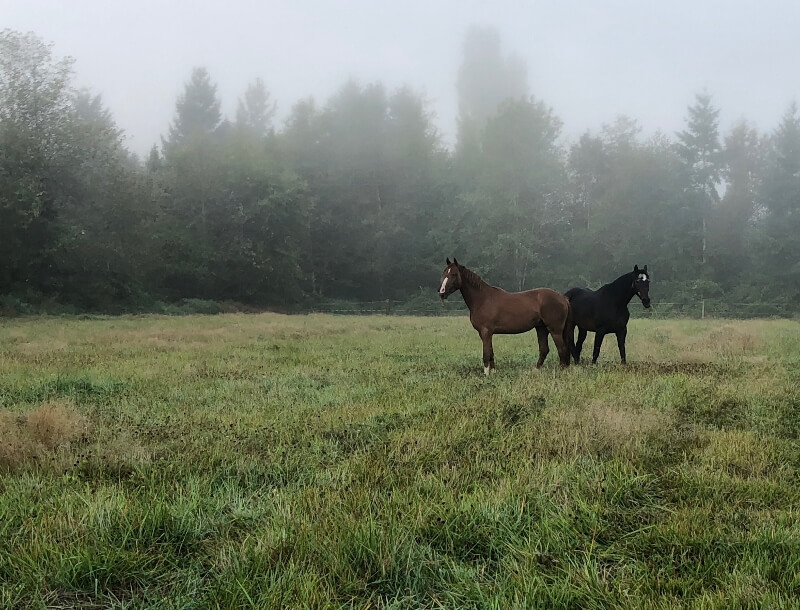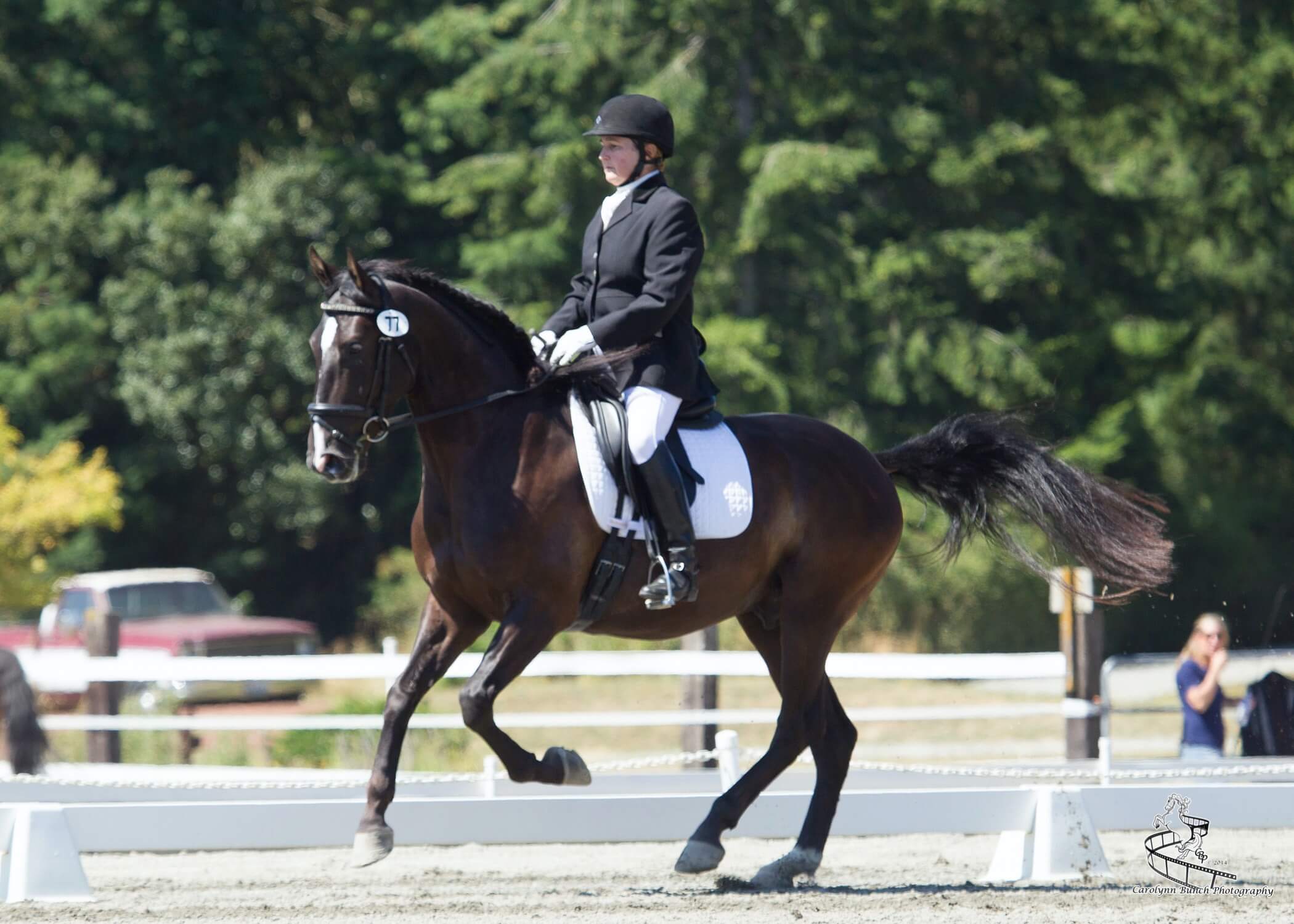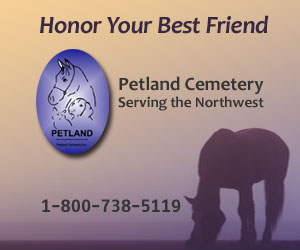Reducing Stress a Vital Part of Equine Wellness
By Kim Roe

During the summer and fall I get up early in the morning to let my horses out in the pasture before the sugar content rises in the grass and the bugs get bad. It’s a pain (as I love to sleep in) but I know the importance of turnout and grazing for horses, so it’s part of our summer and fall schedule.
Due to our rich Northwest pastures we have to be especially careful about metabolic problems and laminitis. There are horses I keep off the grass altogether, but horses were meant to graze and they crave the room to run. They need physical contact with one another too.
If we look at horses who suffer from metabolic problems — especially Cushing’s disease — we’ll note those horses have high cortisol levels. Cortisol is a stress hormone that’s also abundant in people with metabolic problems. It’s hard to know what comes first: the stress, or the disease.
There’s still much to learn about metabolic issues in horses, and I certainly don’t have the answers, but I have noticed that my horses who get turned out in the early mornings stay fitter, are leaner and more muscled (they run and play a lot), and are definitely calmer and less stressed than those who don’t. After a few hours of grazing and playing my horses are incredibly mellow. They usually come in and take a late morning nap. Riding is a lot less of a rodeo too!
Sometimes it’s hard to imagine how horses who have people taking care of their every need could possibly be stressed; I think the lives we have devised for them are more stressful than we might imagine. We lock them away from each other and feed them at set intervals throughout the day – a very unnatural situation. The feed is rich, steeped in fertilizers, herbicides, and pesticides and often grown regionally on similar soils. We work them hard, take them away from their friends, and haul them around in little metal boxes. Unfortunately, it stresses them out.
Equine wellness involves many things. This month’s cover story features an innovative laser therapy, and our feature article will help you find a qualified massage therapist. For more on Cushing’s disease read the Equine Wellness column by Dr. Viveka Rannala, DVM.
Stress-reduction helps our horses live longer, healthier, and happier lives. There are many strategies for lowering our horses’ stress – pasture time is just one of them.
Finally, I’ve grown to love those early mornings too. Watching my horses run and play, then settle down to graze makes me happy and less stressed as well. [email protected]

Kim Roe grew up riding on the family ranch and competed in Western rail classes, trail horse, reining, working cow, and hunter/jumper. She trained her first horse for money at 12 years old, starting a pony for a neighbor.
Kim has been a professional dressage instructor in Washington state for over 30 years, training hundreds of horses and students through the levels. In recent years Kim has become involved in Working Equitation and is a small ‘r’ Working Equitation judge with WE United.
Kim is the editor of the Northwest Horse Source Magazine, and also a writer, photographer, and poet. She owns and manages Blue Gate Farm in Deming, Washington where she continues to be passionate about helping horses and riders in many disciplines.





